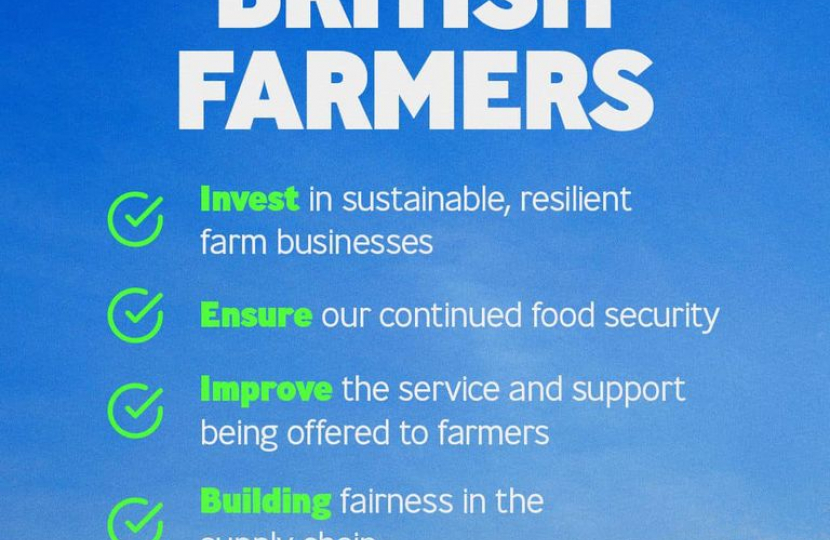
The government has today (Tuesday 20 February) underlined its commitment to deliver on its plan to support profitable farming businesses, improve food security and protect the British agriculture sector for generations to come.
Speaking at the National Farmers Union Conference in Birmingham, the Prime Minister and the Environment Secretary announced a range of measures to boost productivity and resilience in the sector, including the largest ever grant offer for farmers in the coming financial year, expected to total £427 million.
This includes doubling investment in productivity schemes, bolstering schemes such as the Improving Farming Productivity grant, which provides support for farmers to invest in automation and robotics, as well as solar installations to build on-farm energy security.
The Prime Minister also announced a new annual UK-wide Food Security Index to capture and present the data needed to monitor levels of food security, that the Farm to Fork Summit will be held annually, and a £15 million fund to help tackle food waste by enabling farmers to redistribute surplus food that cannot be used commercially at the farm gate.
This comes as new regulations will be laid in Parliament tomorrow to ensure fair and transparent contracts for dairy farmers, meaning clearer pricing terms for farmers; changes to contracts can’t be imposed on farmers without their agreement; and providing more straightforward ways for farmers to raise concerns about their contracts. Alongside this, a review is also set to launch to improve fairness in the poultry supply chain.
Environment Secretary Steve Barclay said:
For generations, farmers have worked day in, day out to put food on our tables and are custodians of our beautiful British countryside. This is why we committed £2.4 billion to support British farming and have invested into the sector to boost agricultural productivity and resilience, increase food security and deliver for the environment, delivering on our plan.
This includes the largest ever package of competitions and grants to foster technology and innovation, bolstered by our increasingly popular farming schemes that support all types and size of farm businesses to produce food sustainably.
The government also confirmed farmers will benefit from the improved Sustainable Farming Incentive (SFI) from July this year, following the announcement by the Environment Secretary Steve Barclay in January.
The improved offer includes a 10% increase in the average value of agreements in SFI and Countryside Stewardship (CS); a streamlined single application process for farmers to apply for the SFI and CS Mid-Tier; and around 50 new actions that farmers can get paid for.
In addition, the government will double the Management Payment for SFI so those with existing agreements will receive up to an extra £1,000 this spring and it will be extended to Countryside Stewardship mid tier for the first year of agreements starting by March 2025. This means that the 11,000 farmers that have applied for SFI will receive that top up this spring.
At the conference, the Environment Secretary Steve Barclay will host a roundtable with regional NFU board members to discuss the opportunities and issues facing farmers around the country. The Farming Minister Mark Spencer will speak at the conference as part of a political session on Wednesday.
Farming Minister Mark Spencer said:
Maintaining food security and boosting sustainable food production is vital as we see the impacts of more extreme weather and global events, and today’s announcements provide further support for farmers to deliver this while also protecting the environment.
Almost half of farmers across the country are already signed up to our farming schemes and we continue to work closely with farmers to tweak and improve our offer so as many farmers as possible are encouraged to get involved.
Further measures announced include making up to £500,000 available to deliver projects that support mental health in the farming sector; and expanding permitted development rights to help farm businesses diversify and run profitable businesses, such as farm shops and sports venues.
Funding will also be provided to Internal Drainage Boards that protect agricultural land and rural communities from flooding, helping areas recover from recent flooding events and modernising infrastructure to lower costs for farmers and increase their resilience to climate change.
